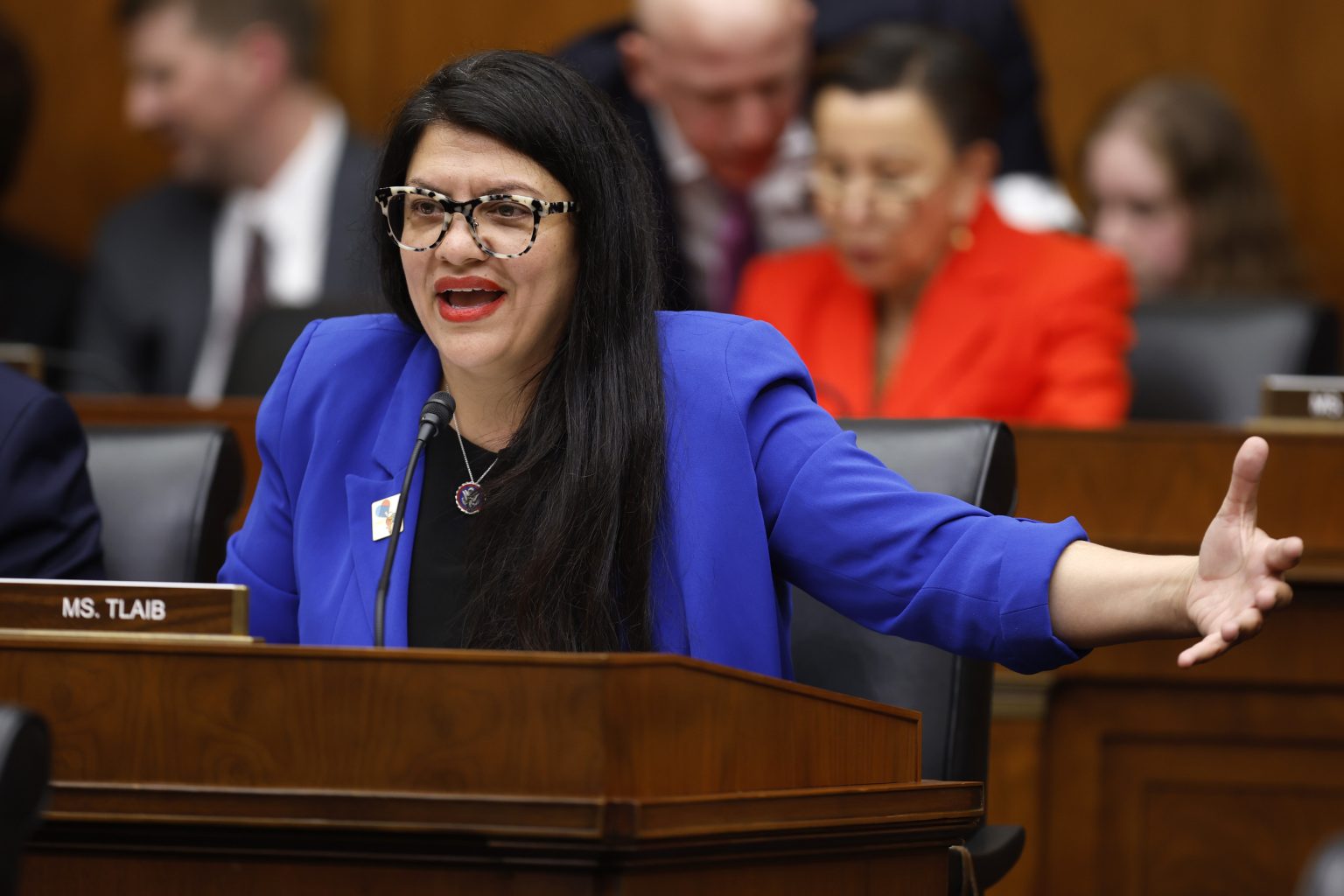Michigan Democrat Rashida Tlaib accused Fox News of using “racist tropes” and being “Islamophobic” during a heated exchange with a Fox Business reporter on Thursday. The incident occurred after Tlaib was asked to condemn chants of “death to America” at a rally in her district. Tlaib responded by saying she does not speak to Fox News and criticized the network for its portrayal of Muslims.
The confrontation between Tlaib and the Fox Business reporter, Hillary Vaughn, took place in the Capitol Hill complex and lasted about 50 seconds. Tensions were high after reports of demonstrators at a rally in Dearborn, Michigan, chanting “death to America” and “death to Israel” on April 5. This incident added fuel to the fire, leading to further scrutiny of Tlaib’s response and her views on the network’s coverage of Muslim-related issues.
As a prominent Muslim-American congresswoman, Tlaib has been vocal about issues related to Islamophobia and racism. Her refusal to engage with Fox News and her accusations of racist behavior by the network reflect broader concerns within the Muslim community about media representation and bias. The incident highlights the complex relationship between politicians and the media, particularly in the current political climate where issues of race, religion, and identity are heavily scrutinized.
The clash between Tlaib and Fox News underscores the ongoing debate around free speech, media ethics, and political polarization in the United States. While some may see Tlaib’s response as a refusal to engage with a perceived biased network, others may view it as an attempt to hold the media accountable for its portrayal of marginalized communities. As the story develops, it will be important to consider how media outlets handle criticism from politicians and the impact it has on public discourse.
The incident involving Tlaib and Fox News is a reminder of the power dynamics at play within the media landscape and the influence it can have on shaping public opinion. As politicians and journalists continue to navigate challenging terrain, it is crucial for both sides to engage in constructive dialogue and uphold principles of fairness and accuracy. The ongoing debate around media representation and bias is likely to intensify as issues related to race, identity, and religion remain at the forefront of national discourse.
In conclusion, the clash between Rashida Tlaib and Fox News highlights the complexities of media coverage, political discourse, and representation in a diverse society. As the story unfolds, it will be important to reflect on the broader implications of this incident and consider how it informs our understanding of free speech, media ethics, and the responsibilities of politicians and journalists in shaping public opinion. By engaging in thoughtful dialogue and holding each other accountable, we can work towards a more inclusive and equitable media landscape that reflects the diversity of voices and experiences in our society.


